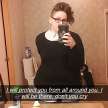Read like a Professor
An Application of Themes and Ideas from 'How to Read Literature Like a Professor' by Thomas C. Foster to 'The Things They Carried' by Tim O’Brien

Family members do not always look alike despite being related. Likewise, though The Things They Carried by Tim O’Brien and How to Read Literature Like a Professor by Thomas C. Foster do not seem similar at first glance, the two are actually extremely related. The selected readings from Foster’s textbook regarding quests, weather, and symbolism are readily applicable to Tim O’Brien’s novel. O’Brien’s work is full of subsidiary quests related to the main character’s prodigious quest, which is to battle in Vietnam. The weather in the The Things They Carried contributes to the altogether state of confusion, gloominess, and primal nature of the novel, as explained by Foster in his textbook. Symbolism is exceptionally present in O’Brien’s novel, and Foster deposits immense importance on the shoulders of symbolic meaning. The Things They Carried is easily read like a professor.
The Things They Carried is comprised of subsidiary quests that, when read together, form one much larger, much more difficult journey. According to Foster, “A quest consists of five things: (a) a quester, (b) place to go, (c) a stated reason to go there, (d) challenges and trials en route, and (e) a real reason to go there” (Foster 6). In the paramount quest of the novel, the quester is Tim O’Brien, and his “place to go” is Vietnam. O’Brien’s stated reason is his draft letter, forcing him to join a war he despises and to abandon his family, future, and friends. He faces immense internal struggles and challenges leading up to his time in the war, including self-doubt, fear, shame, guilt, and moral conflictions. It is a combination of these obstacles that lead him to the Tip Top Lodge in a subsidiary quest. In this journey, O’Brien is, again, the quester. His destination is the Canadian border, and his goal is to escape his draft notice. He faces moral conflict yet again: the decision between abandoning his future and fleeing to the north or abandoning his beliefs and joining the war that chases him constantly. O’Brien even battles against a hallucination while fishing with his caretaker at the Tip Top Lodge, which sparks his final decision to go to war. The true reason to go to the border is to discover that cowardice has no place in his world. Foster defends the idea that the real reason to go on any quest is self-knowledge. This also holds true in The Things They Carried. In this novel, the self-knowledge is that courage, while often a source of pride, is not an inherited trait, nor can it be accumulated through a lack of usage. “Courage, I seemed to think, comes to us in finite quantities, like an inheritance, and by being frugal and stashing it away and letting it earn interest, we steadily increase our moral capital in preparation for that day when the account must be drawn down” (O’Brien 34-35). His lack of courage led to a realization that he was not a hero in his traditional view of the term. “The old image of myself as a hero, as a man of conscience and courage, all that was just a threadbare pipe dream” (O’Brien 46). With O’Brien as the quester, his destination being Vietnam, his draft notice forcing him to battle, his ethical conflictions, and his occult thirst for an understanding of his own courage, O’Brien’s tale is most certainly considered a quest.
Weather, wild, and unpredictability heavily influence the moods and themes of The Things They Carried. Fog carries with it a mood of confusion and murkiness. “Fog, for instance. It almost always signals some sort of confusion… In each case, the fog is mental and ethical as well as physical. In almost any case I can think of, authors use fog to suggest that people can’t see clearly, that matters under consideration are murky” (Foster 46). In The Things They Carried, the fog is a mental, physical, and ethical caliginosity. By means of lack of vision, fog creates an atmosphere of fear and high anxiety, which can lead to tricks of the mind. “Around dawn things finally get quiet. Like you never even heard quiet before. One of those real thick, real misty days—just clouds and fog, they’re off in this special zone—and the mountains are absolutely dead-flat silent. Like Brigadoon- pure vapor, you know? Everything’s sucked up inside the fog. Not a single sound, except they can still hear it” (O’Brien 57). This selection regales part of a tale of a group of soldiers who begin hallucinating while on a secret mission into the misty mountains of Vietnam. The fog forced the men into a state of pseudo blindness, causing their minds to overreact and try to create something out of the overwhelming nothing. Similarly, rain contributes to a tone of isolation, separation, and misery. “Rain can be more mysterious, murkier, more isolating than most other weather conditions… Then there is the misery factor… With a little rain and a bit of wind, you can die of hypothermia on the Fourth of July” (Foster 45). Likewise, in his novel, O’Brien often discusses the constant rain as a threatening, depressing component of his time in Vietnam. “How the rain never stopped. How the cold worked into your bones. Sometimes the bravest thing on earth was to sit through the night and feel the cold in your bones” (O’Brien 103). Weather, a famously fickle feature in stories, is heavy with meaning and theme in The Things They Carried.
In his textbook, Foster holds the ability of any object to be a symbol, posing the question, “Is that a symbol?" and responding, "Sure, why not” (Foster 55). The Things They Carried is laden with symbolism. For example, the little girl seen dancing, silent and numb, in “Style” is potentially symbolic of the trauma created in the minds of young victims of war. However, she could also represent the pointlessness of war, because she had no apparent reason for her dance. The twenty-something year old man killed—or perhaps not killed—by O’Brien is a symbol, as well. He represents the wasteful nature of war, disposing of young people left and right, but he also represents the way in which young people are often forced into terrible, unsafe situations. O’Brien defends this theory by creating an entire history for the young man in which he dreams of school and girlfriends and is ridiculed for the femininity of his body. Timmy signifies the past innocence of men who went to war and the trauma experienced at the hands of death. Betokening survivor’s guilt, shame, social obligation, and feigned patriotism, Norman Bowker is quite possibly the most significantly weighted symbol in the entire novel. In addition to the aforementioned meanings, Bowker could also represent the lack of coping mechanisms taught to veterans, leading to suicidal tendencies and suicide. Symbols are readily found in The Things They Carried.
Relatives are not required to look alike to maintain their familial bonds. Likewise, despite the fact that The Things They Carried by Tim O’Brien and How to Read Literature Like a Professor by Thomas C. Foster do not seem related at first glance, the two are, in truth, comparable. These readings from Foster’s textbook exemplifying quests, weather, and symbolism are applied to Tim O’Brien’s novel without difficulty. O’Brien’s work is full of bijou quests related to the main character’s foremost quest, which is to serve in combat in Vietnam. The weather in the The Things They Carried is instrumental in the altogether state of confusion, gloominess, and primal nature of the novel, as explicated by Foster in his textbook. Symbolism is outstandingly present in O’Brien’s novel. Foster paints symbols like Atlas, but instead of supporting the weight of a literal universe, symbols carry the weight of a story, a legend, an entirely different kind of universe. In conclusion, The Things They Carried is easily "read like a professor."
Works Cited
Foster, Thomas C. How to Read Literature Like a Professor. HarperCollins, 2003.
O’Brien, Tim. The Things They Carried. Houghton Mifflin, 1990.
About the Creator
Ollyvir Reagan
I'm nonbinary, they/them pronouns.
I'm sapphic.
I'm a Classics Major and an aspiring
Latin teacher.
I love Latin, history, math, art, and literature.






Comments
There are no comments for this story
Be the first to respond and start the conversation.